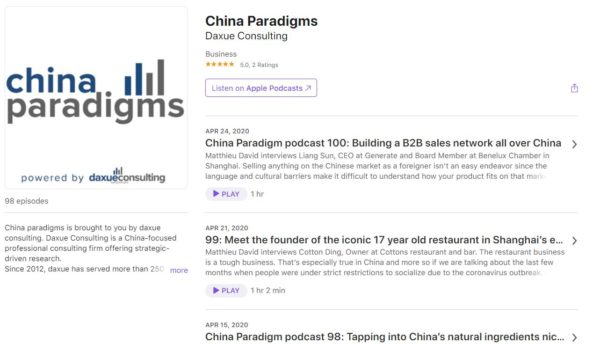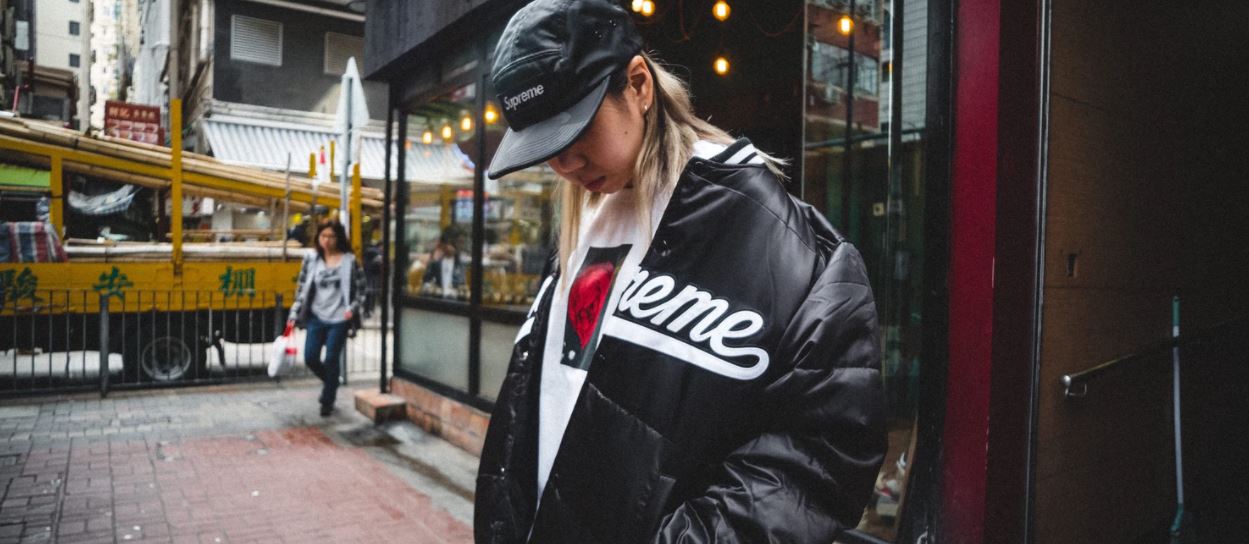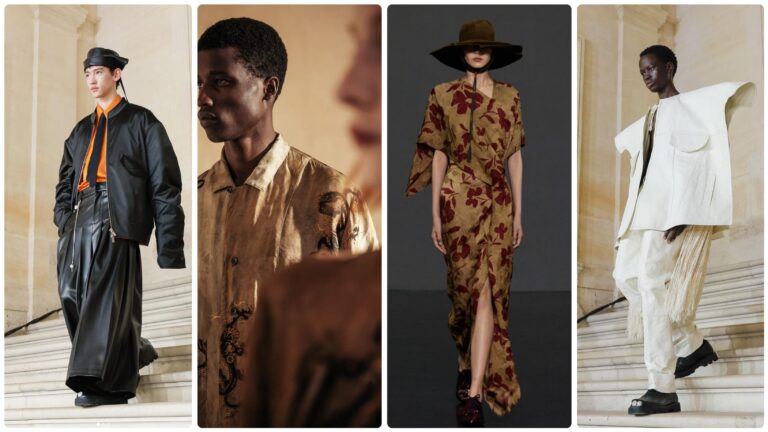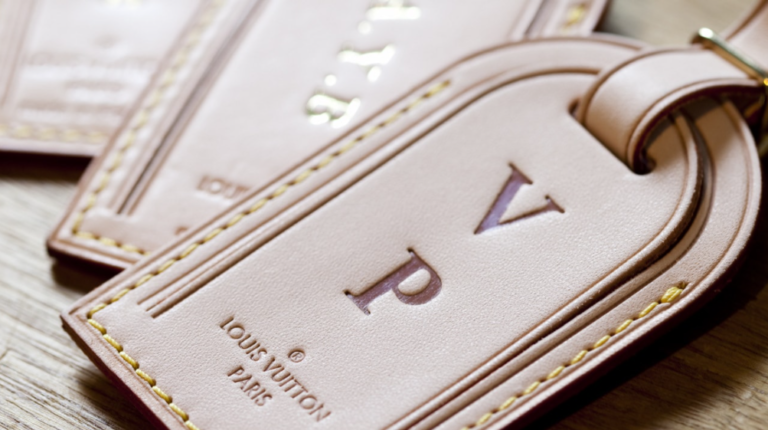Supreme is a brand from New York, USA founded in 1994. The founder, James Jebbia, drew inspiration from both skateboarding and hip-hop cultures during the time when skateboarding culture started flourishing. American skate culture and hip-hop culture are both inspirations of modern Chinese streetwear. Naturally, this has led to massive success for Supreme in China.
As a street fashion brand representing New York street culture, especially skateboarding culture, Supreme’s influence gradually advanced to London thanks to the British trend group GIMME5. In Japan, famous musician, producer, and designer Hiroshi Fujiwara introduced this brand to people and it became popular quickly. Supreme attracts young Chinese people with its background, which comes from the Lower East Side in New York. It includes the influence of Little Italy, Chinatown and Brooklyn where the street culture gained the features of different immigrant groups.
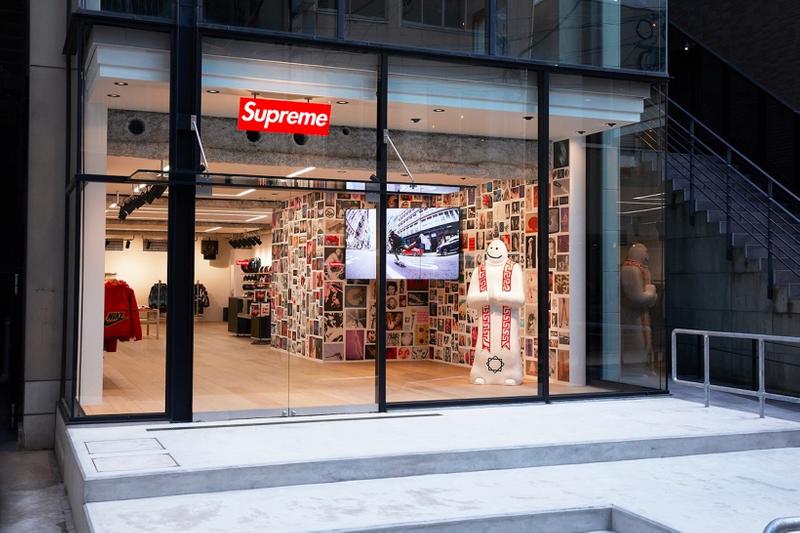
Source: Hypebae, Supreme store in New York
China’s growing interest in streetwear
The growth in consumption of streetwear in China in 2017 was 3.7 times higher than that of non-streetwear. According to Tmall, China’s largest e-commerce platform, streetwear sales in 2018 were 60% higher than the growth of casual clothing category. Supreme represents streetwear to the Chinese consumers the most.
Although hip-hop fashion and street culture are popular in the West, they have never been a mainstream in China. However, things changed after hip-hop competition reality show “The Rap of China” in 2017. According to Chinese media, the first episode of this show attracted more than 100 million viewers within four hours of its launch. The current average number of viewers per episode is about 200 million.
This popular show acts as a direct guide for streetwear brands: the judges wear Off-White, Vetements, Supreme and Raf Simons. Whenever iQiyi broadcasts a new episode, it quickly becomes one of the hot topics on Weibo. From the contestants’ rap skills to their clothing, it has aroused heated discussions among Chinese people.
Skateboard and hip-hop culture in China are behind Supreme’s success
“The Rap of China” helped to further explore a street-wear market introducing many international street brands to consumers. From this point of view, this show is very important to brands because it provides marketing and promotion for their products. At-heart, hip-hop is an anti-system culture, hence and is not favored by the government. Therefore, it has to grow underground. However, “The Rap of China” is the promotion of hip-hop culture, while instilling patriotism, to coincide with the mainstream values.

Source: The Chinese pulse, The Rap of China, Kris Wu
Since the 2000s, skateboarding has become an increasingly popular sport in China and has grown into a whole culture. Even international teams are showing interest in China and bringing their own skate teams. This trend has lead to young Chinese learning about western skaters and adapting their style of hoodies, t-shirts, graphic t’s, logos and sneakers. It gave a boost to the streetwear brands such as Supreme.
Supreme’s guerilla marketing strategy
Supreme uses guerrilla marketing, which is using non-standard marketing methods. For example, the influence of the streets and viral videos on the Internet help Supreme attract new customers and create a loyal fan base. Supreme reaches out to its fans with short videos or pictures of skaters and rappers.
Supreme’s products have an air of exclusivity of the hip hop or scater ‘in-crowd’. The streetwear brand often collaborations with other brands including Nike, Lacoste, Comme Des Garcon, and Louis Vuitton. Many iconic rappers are also actively promoting Supreme. For instance, Gucci Mane, Kanye West and Travis Sсott often wear Supreme clothes.
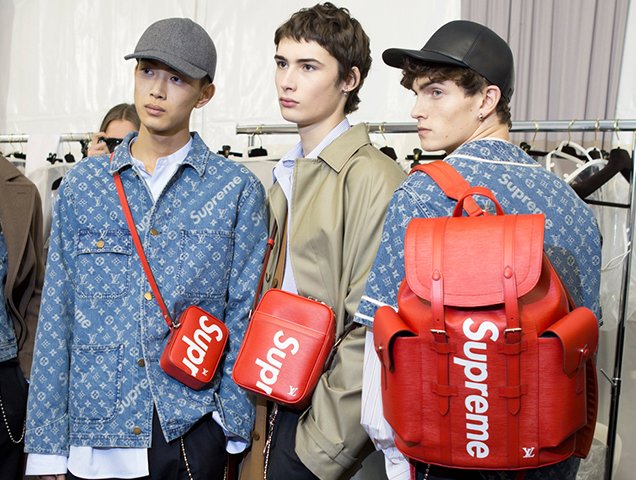
Source: The Fashion Spot, Supreme x Louis Vuitton collaboration
Supreme in China: selling without any physical store
Minimal sales channels for Supreme in China contribute to both exclusivity and counterfeiting
Supreme has brick and mortal stores in just 12 locations all over the world, six of which are in Japan. Supreme has no physical stores or online stores in China, which in turn contributes to the exclusive image. Therefore, Chinese consumers have to turn to buyers’ stores or aftermarket platforms.
The closest Supreme store is in Japan, so it is hard for Chinese fans to find original Supreme products. This is the reason for many Supreme counterfeiters in China. On Taobao, Tmall and other e-commerce platforms in China people can find different Supreme fakes for a small cost.
Supreme has an official WeChat account, but it has only two functions: remind the subscribers about new products and show stores where they can buy them; and push internal information to specific consumers (usually the most loyal ones). However, customers cannot buy Supreme’s products through WeChat.
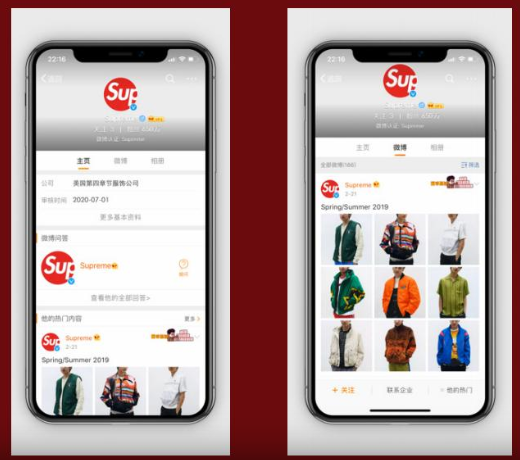
Source: Issuu, Supreme account on WeChat
Supreme in China: millennials and Gen Z are the key consumers
The rise of streetwear in China happened due to increasing interest from millennials and Gen Z. Youth’s interest in streetwear is driving Supreme’s sales growth. Presenting street culture and emphasizing personality helps Supreme transform it into a street and sports brand that attracts Chinese millennials and Gen Z. Also, Supreme belongs to the luxury market segment. Chinese luxury consumers are younger than the global average and value the combination of brand and product value.
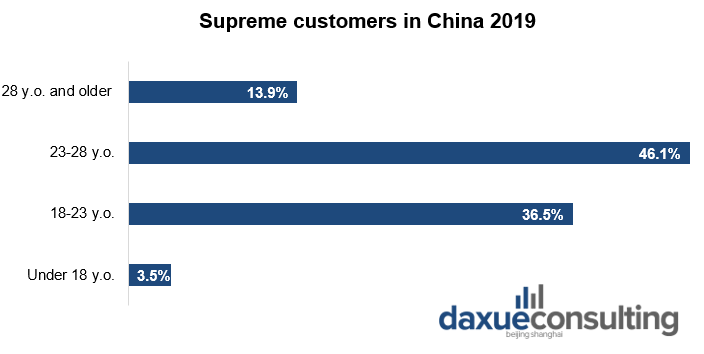
Data Source: Issuu, Supreme customers in China
Supreme in China: a brand loved by Chinese celebrities
As one of China’s most famous singers and actors, Kris Wu has become a fashion icon and an ambassador for luxury brands in China.
In the first episode, Kris Wu appeared wearing a T-shirt with the logo of Supreme. Supreme is already a very famous brand for some hip-hop fans, thanks to some Hong Kong hipsters, such as Edison Chen and Shawn Yue, who often express their appreciation and love for this brand.
The future of Supreme in China
Supreme’s fight with counterfeits in China
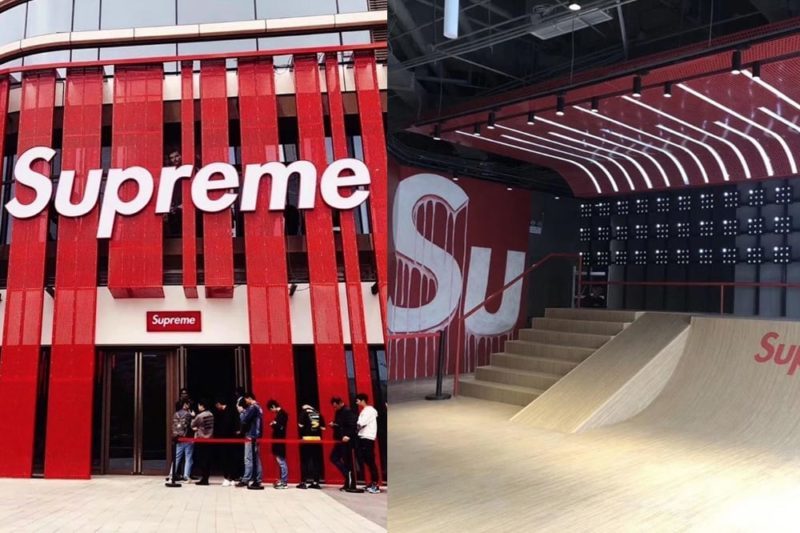
Source: The Source Magazine, Fake Supreme store in Shanghai
One of Supreme’s largest fake stores, Supreme Italy, has opened stores throughout China, including a 7-story store in the Sanlitun district of Beijing. Supreme Italy’s trademark is known as Legal Fake. This is the practice of some companies that rush to register trademarks long before a foreign fashion brand settles in the country.
However, Supreme Italy did not have a registered trademark in China, so it could not sell counterfeits in China. The original Supreme brand had a court order prohibiting everyone from selling goods from Supreme Italy and seeking help from Chinese law enforcement to expand their trademark rights.
In 2020, Supreme finally received a trademark in China and fake store in Shanghai had to close. This means that the brand can now defend itself against copycats in the region as the original Supreme has a priority. It already has 251 registrations in different countries such as America, Hong Kong, Italy, Spain, Australia, Russia and the United Arab Emirates.
Growing interest in streetwear and menswear in China gives big opportunities for Supreme
Street fashion increasingly appeared in magazines and became the center of attention in the first and second tier cities of China. Millennials and Gen Z are the main consumer groups for streetwear. This allows brands like Supreme to expand their reach in China, at least in major cities.
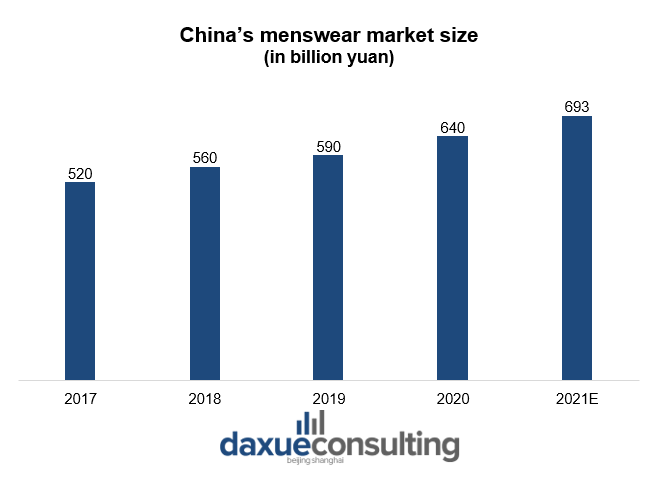
Data Source: China Industry Research Institute, China’s menswear market size
For menswear, the annual growth rate is about 4% and sales will reach 693 billion yuan in 2021. The men’s clothing market in China has great potential as there is a group of wealthy and loyal young customers whose demand for niche street brands and authenticity is driving Supreme’s success.
Learn something new? Stay updated on the Chinese market by following our WeChat, scan the QR code below, or subscribe to our newsletter

Listen to over 100 China entrepreneur stories on China Paradigms, the China business podcast
Listen to China Paradigm on Apple Podcast
